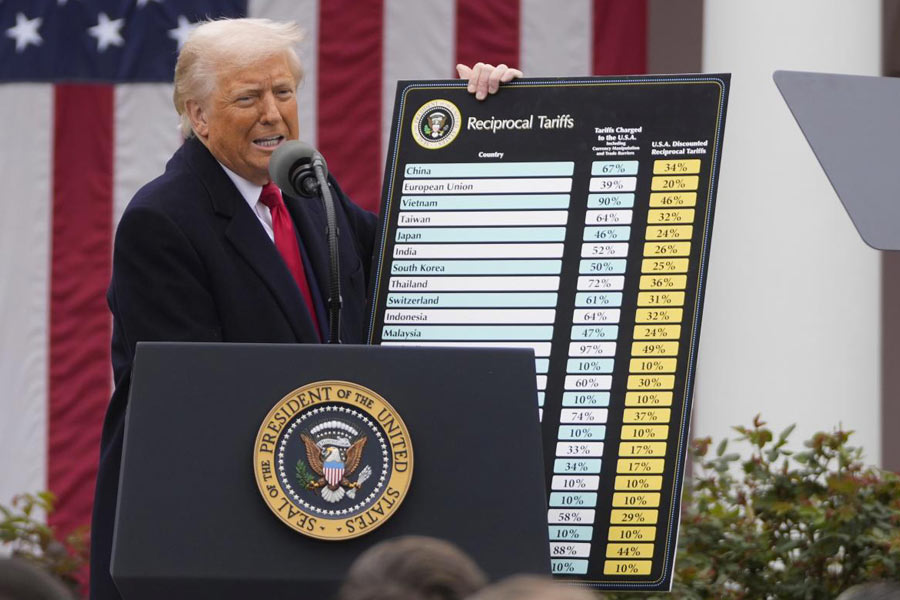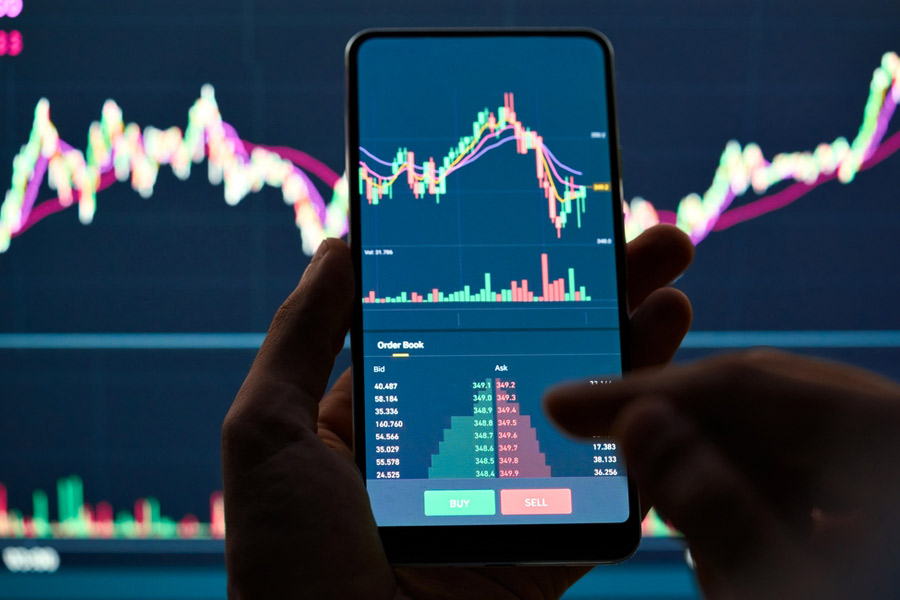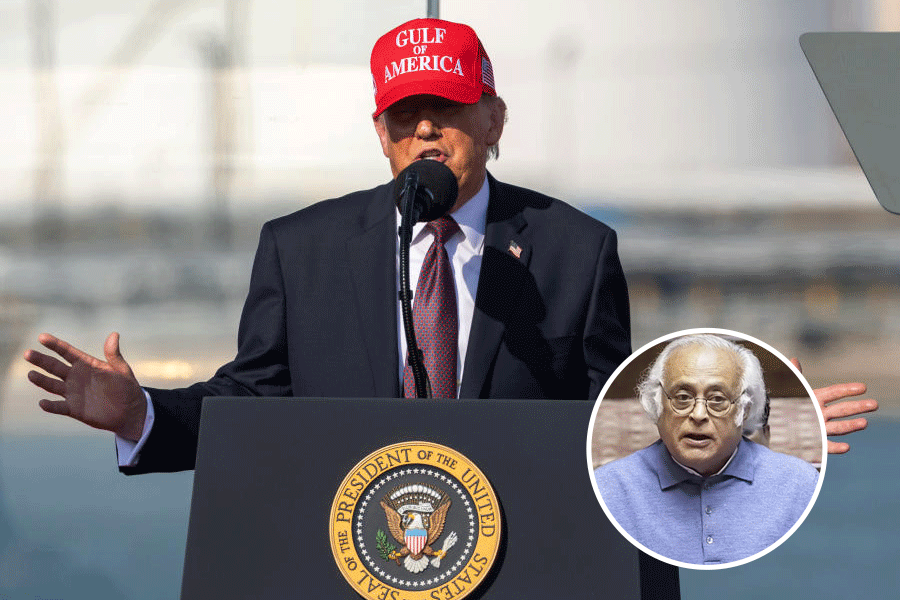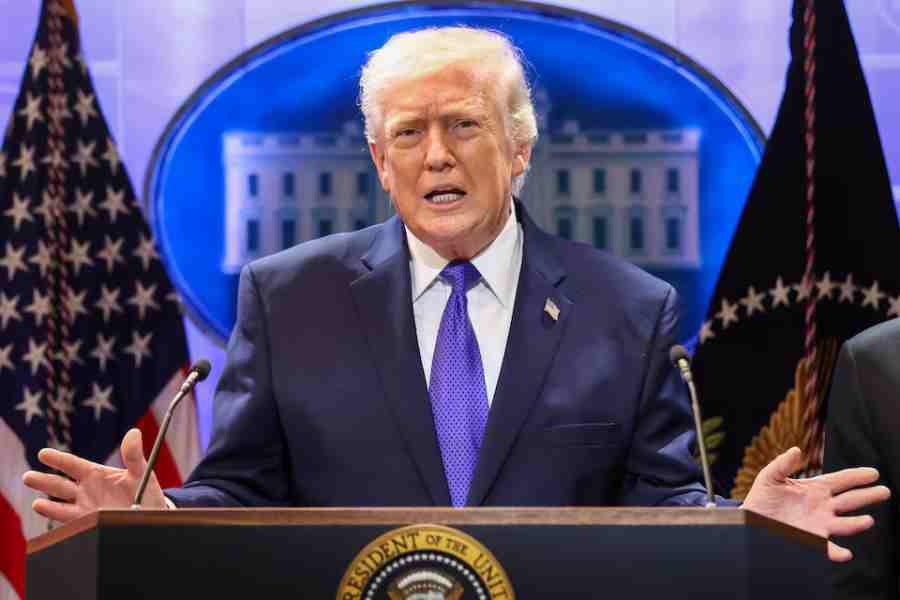The US stock market suffered its sharpest single-day drop in five years following President Donald Trump’s announcement of tariffs.
Everything from crude oil to Big Tech stocks to the value of the US dollar against other currencies fell, the CNN reported.
Even gold, which hit records recently as investors sought something safer to own, pulled lower.
Despite the losses and signs of deepening investor anxiety, the President insisted, “I think it’s going very well,” in comments that drew immediate concern from economic experts and political observers alike.
The Dow Jones Industrial Average plunged over 1,600 points Thursday, wiping out $2.5 trillion from the S&P 500 index in a dramatic selloff that rattled global markets.
The ripple effects were felt from Europe to Asia. France’s CAC 40 plunged 3.3 per cent, Germany’s DAX dropped 3 per cent, and Japan’s Nikkei 225 fell 2.8 per cent.
In India, the Sensex declined 591 points to 75,704 in early trade on April 4, while the Nifty fell 202 points to 23,047.
Best Buy shares plunged 17.8 per cent, United Airlines tumbled 15.6 per cent, and Target dropped 10.9 per cent. The electronics giant was hit hard due to its globally sourced products, while airline and retail stocks suffered over growing concerns that consumers would cut back amid inflationary pressures and economic uncertainty.
Trump brushed off global market volatility as he boarded Air Force One for a trip to Florida to host a tournament for millionaire players on the Saudi-backed LIV rebel golf tour.
“The markets are going to boom, the stock is going to boom, the country is going to boom,” Trump proclaimed as he left the White House.
Trump downplayed the market reaction, likening the economic upheaval to a medical procedure. “It was an operation like when a patient gets operated on and it’s a big thing. We’ve never seen anything like it,” he said, drawing parallels between short-term pain and long-term recovery.
His economic optimism contrasts with the market reality. Stellantis, the multinational automaker behind Chrysler and Dodge, has paused production in Mexico and Canada in the wake of the announcement.
Wall Street, which had long assumed that Trump would wield tariffs as a bargaining tool rather than implement them as lasting policy, now faces a reckoning.
Trump’s declaration came just hours after the White House unveiled a minimum 10 per cent tariff on imports, with even higher rates targeting countries like China and European Union members.
The announcement confirmed fears on Wall Street that Trump’s trade rhetoric had escalated into a full-scale global trade war.
“We’re feeling good,” Vice President JD Vance told Newsmax, brushing off fears of a deeper economic crisis. “I frankly thought in some ways it could be worse in the markets because this is a big transition.”
UBS analysts warned that the tariffs could drag U.S. economic growth down by two percentage points this year while driving inflation to nearly 5 per cent — a scenario not seen in decades. The tariffs, if enacted fully, would rival levels last imposed nearly a century ago.
If Trump follows through on his tariffs, stock prices may need to fall much more than 10 per cent from their all-time high in order to reflect the recession that could follow, along with the hit to profits that US companies could take.
Trump continued to frame the move as a negotiating tactic. “Tariffs give us great power to negotiate,” he told reporters aboard Air Force One, adding that he’d be open to reconsidering if other countries presented something “phenomenal” in return.
He talked about trillions of dollars in investment that is "coming into our country" from companies that want to make their products in the US to avoid tariffs.
As American seniors face sharp declines in retirement savings and US businesses brace for supply chain shocks, the world is watching closely. Trump, for his part, remains unfazed.











